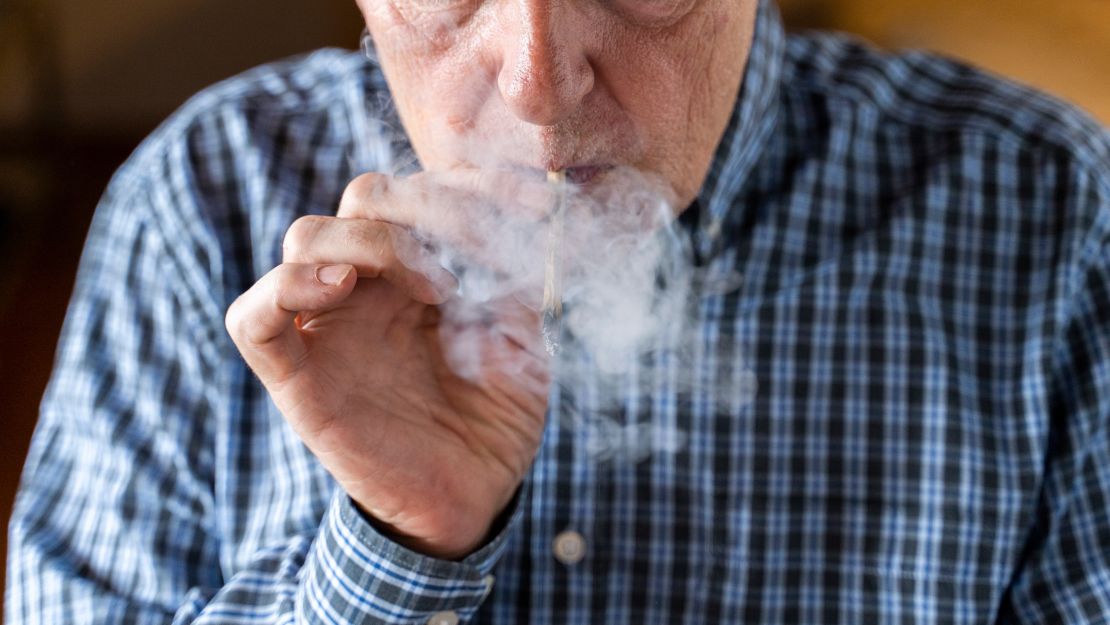Using marijuana as little as once per month is associated with a higher risk of both heart attack and stroke, according to a large study published Wednesday by researchers from Massachusetts General Hospital.
The paper, which was published in the Journal of the American Heart Association, adds to the growing body of evidence suggesting marijuana may be harmful to the cardiovascular system.
Scientists analyzed data on nearly 435,000 patients, ages 18 to 74, to see whether there was a link between marijuana use and a higher risk of heart disease, stroke or heart attack. The data came from a behavioral risk factor survey collected from 2016 to 2020 by the Centers for Disease Control and Prevention.
Compared with people who had never used marijuana, daily cannabis users had 25% higher likelihood of heart attacks and 42% higher risk of strokes. People who used marijuana just once a week had a 3% increased likelihood of a heart attacks and 5% higher risk of strokes during the study time frame.
READ ALSO: Babysitter arrested after filming self giving one-year-old Marijuana
The study is among the largest to show a connection between marijuana use and cardiovascular health in people who don’t also smoke tobacco, said lead researcher Abra Jeffers, a data scientist at Massachusetts General Hospital.
Nearly 75% of people in the study reported smoking as the most common way they got high. They also consumed edibles and vaped. The study did not specifically look at the risks of smoking marijuana compared to edibles.
Historically, some have dismissed studies looking at marijuana and heart problems because participants often use both tobacco and marijuana products, making it hard to determine which substance is really to blame, Jeffers said.
Robert Page, a clinical pharmacist who specializes in heart disease at the University of Colorado Skaggs School of Pharmacy, is worried about the emerging connections between marijuana consumption and the heart. Page was the lead author of a comprehensive statement on cannabis released by the American Heart Association in 2020.
“I think we’re beginning to see the same things we saw with smoking cigarettes back in the ’50s and ’60s — that this is a signal,” Page said. “I feel like we’re repeating history.”
Ultimately, it will take more rigorous studies to draw any firm conclusion, he said, which would involve following people for years and monitoring their marijuana use. That type of research is difficult to conduct because marijuana is still a Schedule 1 substance under the Controlled Substances Act.
The new research found that the risks of heart attacks and strokes became higher the more days per month people used marijuana, which is called a “dose-response relationship.”
Advertisement“If something is really bad or a toxin, you’d expect more of it to be worse,” said Dr. Deepak Bhatt, the director of Mount Sinai Fuster Heart Hospital in New York, who was not involved with the research. “The fact that there’s a dose response makes it seem like it probably is, in fact, the cannabis that is causing the bad outcome.”
READ ALSO: Landlady drags tenant to court for alleged intimidation, marijuana smoking
Laboratory studies have shown that THC, the psychoactive ingredient in marijuana, can cause an increase in inflammation in the blood vessels, so edibles aren’t necessarily risk-free, Wu said.
“If you’re smoking marijuana it’s probably doing double the damage compared to just using edibles,” Wu said. “When you eat the edible, the THC goes into your body and can cause vascular inflammation. Whereas when you smoke, there is damage from the particulate matter and then the THC gets absorbed into your body, as well.”
The paper found that among younger adults, defined as men younger than 55 and women younger than 65, cannabis use was significantly associated with 36% higher combined odds of coronary heart disease, heart attack and stroke, regardless of whether or not they also used traditional tobacco products.

 Comments and Issues2 days ago
Comments and Issues2 days ago
 Business6 days ago
Business6 days ago
 Business1 week ago
Business1 week ago
 Business1 week ago
Business1 week ago
 Business5 days ago
Business5 days ago
 News6 days ago
News6 days ago
 Education7 days ago
Education7 days ago
 Comments and Issues5 days ago
Comments and Issues5 days ago










